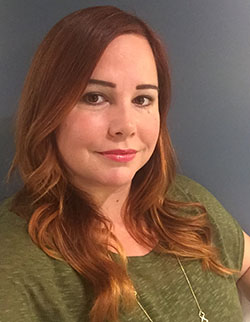Nicole Murphy is Manager of Special Projects at the San Diego Workforce Partnership. Here she describes her role, discusses what she likes best about working in workforce development and shares one of her proudest professional moments.
 Tell us about your role at SDWP.
Tell us about your role at SDWP.
My role as the Manager of Special Projects is to oversee programs that have a focus on serving individuals who are receiving public benefits or are low-income, living with disabilities or have other barriers to employment. Many of these individuals have limited work experience, skills or education. With a focus on financial self-sufficiency, the programs I manage provide a range of services that lead to gainful employment and careers through subsidized work experience, education and training, and supportive services to empower individuals to reach their potential.
What do you like best about working in workforce development?
I’m new to workforce development, with a background in nonprofits that serve individuals and families living with behavioral health issues or facing homelessness and domestic violence. What I enjoy most about working in workforce development is that creating a stronger workforce requires collaboration, partnership and innovation. Ensuring the success of our job seekers includes community supports, job training and education to position individuals for success in the workforce while simultaneously meeting the workforce demands of employers in our region. Seeing the results and impact of our partnerships and programs through individual success stories is inspiring and gratifying.
What professional moment or project are you most proud of?
This month, SDWP wraps up a five-year, $25 million Health Profession Opportunity Grant from the US Department of Health and Human Services designed to provide low-income individuals, who have limited education and work experience, the opportunity to obtain higher education, training and support services to begin a career in health care. To date, over 1,300 individuals have found employment and about 2,000 individuals have completed education and training programs including home health aides, licensed vocational nurses, registered nurses, dental assistants, medical assistants and phlebotomists. For most of the individuals served in the program, this represents the first step on the health care career pathway.
